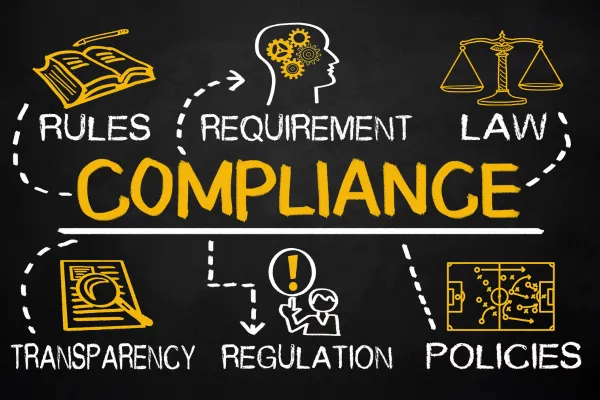
Ai Marketing News & Updates
Our blogs will empower you with the necessary knowledge about digital marketing for small businesses. Delve into the innovative realms of omnichannel marketing and digital content creation.
Join us in exploring the dynamic world of social media content planning, providing insights and strategies to maximize your online presence.
Exploration of AI marketing automation tools offer in-depth analysis and reviews to help you choose the right tools for your business. Our exploration of artificial intelligence for marketing demystifies AI technologies, making them accessible and applicable to your marketing needs.
Marketing Blogs
Our blogs will empower you with the necessary knowledge about digital marketing for small businesses. Delve into the innovative realms of omnichannel marketing and digital content creation.
Join us in exploring the dynamic world of social media content planning, providing insights and strategies to maximize your online presence.
Exploration of AI marketing automation tools offer in-depth analysis and reviews to help you choose the right tools for your business. Our exploration of artificial intelligence for marketing demystifies AI technologies, making them accessible and applicable to your marketing needs.

Legal and Compliance Issues
"In the blogosphere, controversy can be a catalyst for change or chaos. Choose your words wisely."
Introduction:
Navigating the intricate world of legal and compliance issues in coaching is akin to charting a course through uncharted waters. It's a journey fraught with potential pitfalls, from advertising regulations and client confidentiality to the complexities of contracts and the nuances of intellectual property rights. For coaches committed to maintaining ethical standards and legal compliance, understanding and addressing these challenges is paramount to fostering trust and ensuring the longevity of their practice.

Here's a more detailed exploration of the legal and compliance challenges that coaches may encounter and strategies to address them:
Illuminating the Path: Strategies for Legal and Compliance Mastery
Understanding the Financial Landscape
Legal compliance often intersects with financial considerations, such as adhering to advertising regulations without straining your budget. "Budget Constraints" (Budget Constraints) explores how coaches can manage their finances effectively, ensuring that legal and ethical marketing efforts do not compromise financial stability.
Navigating Client Relationships
The cornerstone of any coaching practice is the client relationship, which comes with its own set of legal considerations, notably in client acquisition and data protection. "Client Acquisition Cost" (Client Acquisition Cost) delves into optimizing marketing spend while adhering to legal standards, ensuring that efforts to grow your client base remain compliant and cost-effective.
Building a Resilient Business Strategy
The reliance on a single marketing platform can introduce risks, not least in terms of compliance with platform-specific regulations. "Crafting Your Small Business Success: The Case Against Sole Reliance on Marketing Platforms" (Crafting Your Small Business Success) advocates for a diversified approach, reducing dependency on platforms while navigating legal complexities in marketing strategies.
Addressing Marketing Legalities
The marketing landscape is a minefield of potential legal challenges, from advertising claims to the use of client testimonials. "Navigating the Maze: Unraveling Common Marketing Challenges and Finding Solutions" (Navigating the Maze) offers insights into overcoming these hurdles, emphasizing strategies that ensure marketing efforts are both effective and compliant.
Charting a Course Through Legal Waters
1. Advertising Regulations
Coaches must adhere to advertising regulations, which vary by jurisdiction. Misleading claims or false advertising can lead to legal consequences and damage to reputation.
2. Privacy Laws
Compliance with data protection and privacy laws, such as GDPR in Europe or CCPA in California, is crucial when collecting and handling client data.
3. Client Confidentiality
Maintaining client confidentiality is a core ethical principle for coaches. Breaching confidentiality can lead to legal action and the loss of trust.
4. Contracts and Agreements
Coaches need to create clear and legally binding contracts or agreements with clients to outline terms, responsibilities, and expectations.
5. Intellectual Property
Issues related to intellectual property rights, such as plagiarism or copyright infringement when using content in marketing materials, must be addressed.
6. Dispute Resolution
Coaches should have procedures in place for resolving disputes with clients in a fair and ethical manner, avoiding potential legal disputes.
7. Ethical Codes
Coaches often adhere to professional ethical codes, which can vary by coaching organization. Violating these codes can result in disciplinary actions and reputational damage.
Strategies to Address Legal and Compliance Issues
1. Legal Consultation
Seek legal counsel or advice from a qualified attorney who specializes in coaching or relevant areas of law. They can provide guidance on advertising, contracts, and compliance.
2. Stay Informed
Keep up-to-date with legal and compliance developments in your industry and jurisdiction. Attend workshops or seminars to understand evolving regulations.
3. Privacy Policies
Create and prominently display a clear privacy policy on your website and other relevant materials. Ensure compliance with data protection laws, and inform clients about how their data will be used.
4. Informed Consent
Obtain informed consent from clients before collecting or sharing their personal information. Clearly communicate how client data will be handled and for what purposes.
5. Confidentiality Agreements
Use confidentiality agreements with clients to legally protect sensitive information shared during coaching sessions.
6. Professional Organizations
Join coaching professional organizations that provide ethical guidelines and support for legal and compliance matters. These organizations can offer resources and advice.
7. Advertising Review
Review all marketing materials, including website content, social media posts, and advertisements, to ensure they adhere to advertising regulations and avoid misleading claims.
8. Dispute Resolution Clauses
Include dispute resolution clauses in coaching contracts to specify the process for addressing conflicts and avoiding legal battles.
9. Intellectual Property Rights
Educate yourself about intellectual property rights and licensing. When using third-party content, obtain proper permissions or licenses to avoid copyright issues.
10. Document Everything
Maintain detailed records of client interactions, agreements, and correspondence. These records can be valuable in addressing legal or compliance matters.
11. Transparency
Be transparent with clients about your coaching methods, credentials, and any potential conflicts of interest. Honest communication builds trust and reduces the risk of legal issues.
12. Insurance
Consider professional liability insurance, which can provide financial protection in the event of legal claims related to your coaching practice.
13. Regular Audits
Periodically audit your marketing materials, client agreements, and data handling processes to ensure ongoing compliance with legal and ethical standards.
14. Continual Education
Invest in ongoing education and training in legal and compliance matters. This knowledge will help you navigate potential issues proactively.
15. Ethics Committees
If you belong to coaching organizations, familiarize yourself with their ethics committees and procedures for addressing ethical violations or complaints.
Conclusion
By weaving these strategies into the fabric of their practice, coaches can illuminate the path forward, ensuring their services not only resonate with clients but also stand on solid legal and ethical ground. The journey through the legalities of coaching demands vigilance, dedication, and a proactive approach to compliance. Armed with the right tools, insights, and mindset, coaches can navigate these challenges, turning potential obstacles into stepping stones towards building a thriving, reputable practice.
Connect Now

